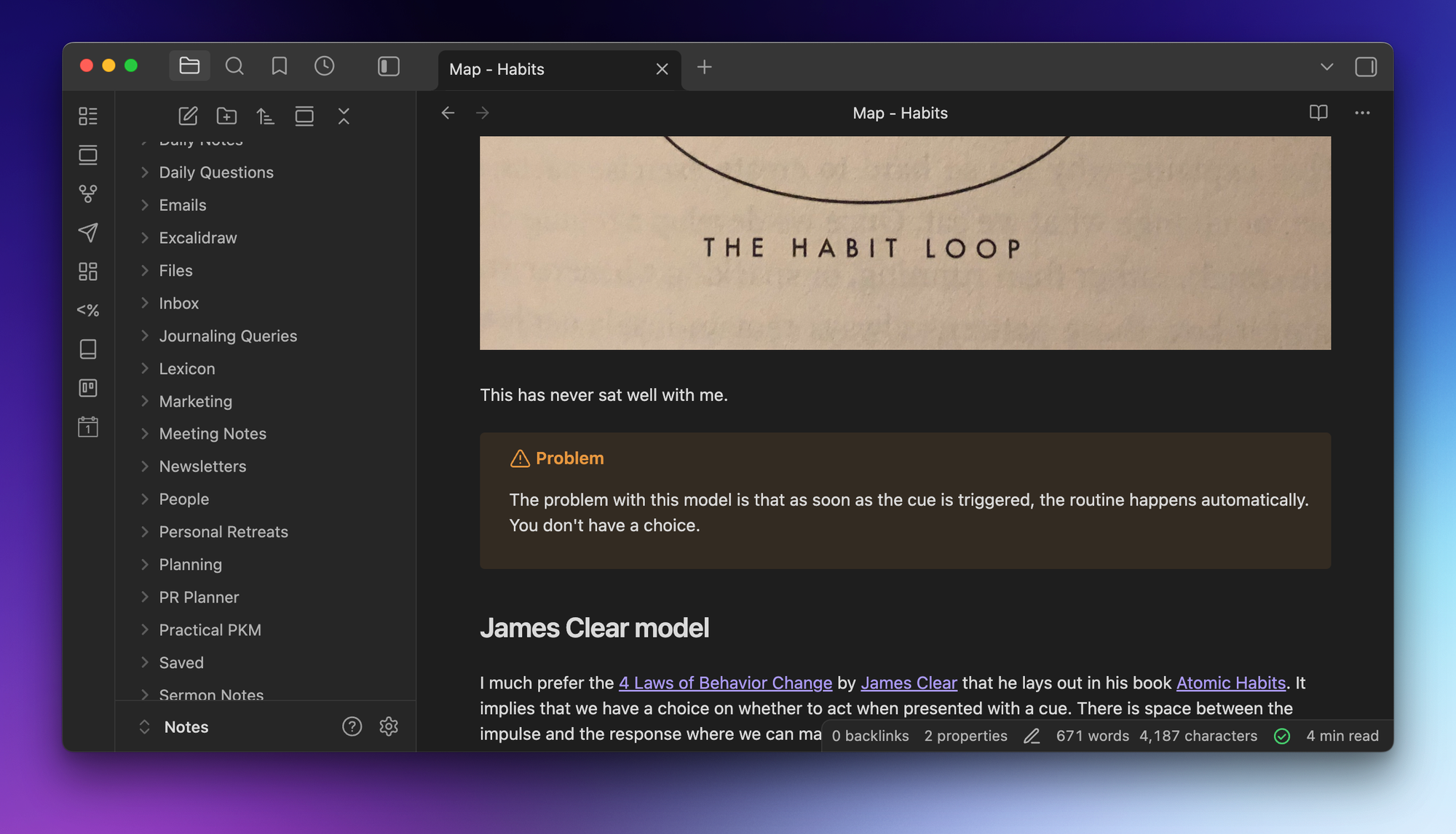Having lots of ideas shouldn’t make you feel confused. But if you’re a perfectionist like me, it often does. The urge to order and organize everything can turn inspiration into overwhelm.
That’s because the creative process isn’t neat. It’s a struggle, sometimes even a battle. And like any battle, it can get messy.
Just look at the desks of some of history’s greatest thinkers. Thomas Edison, Mark Twain, Albert Einstein, Steve Jobs, and many other creatives were notorious for their clutter.
Their mess wasn’t a weakness. It was a byproduct of their brilliant minds in motion.
Yes, organization matters. But when we over-index on cleanliness, we risk killing the very sparks we’re trying to protect.
Creativity thrives in the tension between order and disorder. So the goal of personal knowledge management (PKM) actually isn’t to eliminate the chaos, but to leverage it.
The Anarchy of Ideas
Writing is, at its core, controlled chaos.
When ideas collide, they often don’t line up neatly. The puzzle pieces don’t fit together cleanly.
They jostle, overlap, and sometimes contradict one another. And that’s where the magic happens.
If we insist on keeping things perfectly tidy, we can stifle the unexpected connections that often lead to our most important breakthroughs. So the goal isn’t to create chaos but to accept it as part of the process. We need to recognize that the chaos is the place where the raw materials are shaped into something useful, and it’s not to be feared.
The real work of writing is learning how to turn that disorder into meaning.
The Mental Workbench
One of the best ways to do this is simple: write.
A common PKM mistake people make is that they don’t create anything out of the component pieces they’ve collected. They feel like they can’t sit down to write until they have things figured out.
But we don’t write because we know what we think. We write in order to discover what we really think.
Whenever I’m feeling stuck (facing a “mental squeeze point” where I don’t really know what I think), I’ll open up a new note and just start writing. The blank note acts as a mental workbench where I assemble the different bits and pieces into thoughts and opinions that are uniquely my own.
The output doesn’t have to be polished. I just need the space where I can experiment with all the half-formed pieces as they get sorted, connected, and built into something I can use to make sense of the things I've collected and connected.
Here's an example of a map I created that started as a blank note on my mental workbench when I wanted to wrap my head around what I thought concerning habit formation:

When I go to the mental workbench, most of the time, I find I don’t need more information. I already have the raw materials. What I need is the space to work with what’s there and find out what I really think.
Not All Connections Are Created Equal
The goal isn’t to connect everything. AI tools can already do that, but the result is usually bland and boring.
The goal is to make connections that mean something.
Meaning emerges not from the number of links, but from their significance. A few intentional, well-placed connections can unlock the true power of the notes & ideas in your PKM system.
Some simple tools to help shape this:
- Folders - to group by type
- Tags - to group by topic
- Internal links - for explicit connections between notes or ideas
These aren’t about forcing order on your notes. They’re about giving your thinking just enough structure to help the right ideas collide at the right time.
Embrace the Chaos
Creativity thrives in a place of balance. Too much mess, and we drown in the noise. But too much structure, and we suffocate our creative possibilities.
You don’t need your PKM system to be perfect. You just need it to be useful. And usefulness is often messy.
So embrace the chaos. Follow the threads. You never know where they’ll lead, or what clarity you might find as a result.





